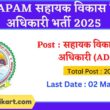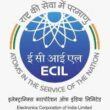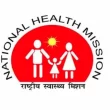ESIC IMO Recruitment 2021
Employees’ State Insurance Corporation (ESIC) recently invites application for for the posts of 300 Insurance Medical Officer (IMO) Grade – II (Allopathic) in ESI Hospitals/ Dispensaries. Interested candidates can apply for ESIC IMO Recruitment 2021 Online before 31 January 2022. Please go through this post for ESIC IMO vacancy details, educational qualification, eligibility criteria, Pay Scale, Application Fees and How to apply for ESIC IMO Recruitment 2021 at official website https://www.esic.nic.in/
ESIC IMO Recruitment 2021 : Important Dates
| Events | Date |
| Starting Date of Online application | 31 December 2021 |
| Last Date for Submission of Application Form | 01 January 2022 |
ESIC IMO Recruitment 2021 : Vacancy Details
| Name of Post | No. of vacancy |
| Insurance Medical Officer (IMO) Grade – II (Allopathic) | 1120 |
ESIC IMO Recruitment 2021 : Category Wise Vacancy Details
| UR | OBC | SC | ST | EWS | Total |
| 459 | 303 | 158 | 88 | 112 | 1120 |
ESIC IMO Recruitment 2021 : Eligibility Criteria
| Name of Post | Educational Qualification |
| Insurance Medical Officer (IMO) Grade – II (Allopathic) |
A recognised MBBS degree qualification included in the First Schedule or Second Schedule or Part-II of the Third Schedule (other than licentiate qualifications) to the Indian Medical Council Act, 1956 (102 of 1956). Holders of educational qualifications included in Part-II of the Third Schedule should also fulfill the conditions specified in sub-section (3) of section 13 of the Indian Medical Council Act, 1956 (102 of 1956). Completion of Compulsory rotating internship. Candidates who may not have completed rotating internships shall be eligible to appear for the written examination provided that, if selected, they shall have satisfactorily completed the compulsory internship before appointment |
ESIC IMO Recruitment 2021 : Age Limit
| Name of Post | Age Limit |
| Insurance Medical Officer (IMO) Grade – II (Allopathic) | 35 Years |
| Age Calculate on 31.01.2022 (Please refer official notification for further age relaxation) | |
ESIC IMO Recruitment 2021 : Application Fees
| Category | Fees |
| For SC/ST/PWD/ Departmental Candidates, Female Candidates & Ex Servicemen | 250/- |
| For All other Categories | 500/- |
ESIC IMO Recruitment 2021 : Pay Scale
| Name of Post | Pay Scale |
| Insurance Medical Officer (IMO) Grade – II (Allopathic) | 56,100 -1,77,500/- (Level-10 of Pay Matrix) |
How to Apply for ESIC IMO Recruitment 2021
| Eligible candidates have to apply online through the website https://www.esic.nic.in/ from 31.12.2021 to 31.01.2022. Job Location : All India Selection Process : Selection will be based on Written Examination and Personal Interview. |
ESIC IMO Recruitment 2021 : Important Links
| Apply Online | Click Here (Active on 31.12.2021) |
| Detail Notification Link | Click Here |
| ESIC IMO Recruitment Official Website | Click Here |
| Join Our Telegram Channel | Click Here |
| Like our Facebook Page | Click Here |
ESIC IMO Recruitment 2021 : Exam Pattern
| The selection for the post of Insurance Medical Officer Grade – II (Allopathic) will be made on the basis of Written Examination followed by interview of eligible and successful candidates. The Examination will be conducted in two parts PART I – WRITTEN EXAMINATION |
| Section name | Syllabus | Marks per Question | No. of Questions |
| Section I: General Medicine & Paediatrics (100 Marks) | General Medicine | 01 Mark per Question | 80 Questions |
| Paediatrics | 01 Mark per Question | 20 Questions | |
| Section II: Surgery, Gynaecology & Obstetrics & Preventive & Social Medicine (100 Marks) | Surgery | 01 Mark per Question | 34 Questions |
| Gynaecology & Obstetrics | 01 Mark per Question | 33 Questions | |
| Preventive & Social Medicine | 01 Mark per Question | 33 Questions | |
| Total | 200 Marks | 200 Questions |
| PART II – INTERVIEW – 50 MARKS. The final selection will be made on the basis of performance of candidates in Paper – I (200 Marks) and Interview (50 Marks). |
ESIC IMO Recruitment 2021 : Syllabus of Exam
Section I – General Medicine and Pediatrics
| (a) General Medicine (i) Cardiology (ii) Respiratory diseases (iii) Gastro-intestinal (iv) Genito-Urinary (v) Neurology (vi) Hematology (vii) Endocrinology (viii) Metabolic disorders (ix) Infections/Communicable Diseases a) Virus b) Rickets c) Bacterial d) Spirochetal e) Protozoan f) Metazoan g) Fungus (x) Nutrition/Growth (xi) Diseases of the skin (Dermatology) (xii) Musculoskelatal System (xiii) Psychiatry (xiv) General (xv) Emergency Medicine (xvi) Common Poisoning (xvii) Snake bite (xviii) Tropical Medicine (xix) Critical Care Medicine (xx) Emphasis on medical procedures (xxi) Patho physiological basis of diseases (xxii) Vaccines preventable diseases and Non vaccines preventable diseases (xxiii) Vitamin deficiency diseases (xxiv) In psychiatry include – Depression, psychosis, anxiety, bipolar diseases and Schizoprenia. |
| (b) Pediatrics (i) Common childhood emergencies, (ii) Basic new born care, (iii) Normal developmental milestones, (iv) Accidents and poisonings in children, (v) Birth defects and counseling including autism, (vi) Immunization in children, (vii) Recognizing children with special needs and management, and (viii) National programmes related to child health |
Paper II – Surgery, Gynecology & Obstetrics and Preventive & Social Medicine
| (a) Surgery (Surgery including ENT, Ophthalmology, Traumatology and Orthopedics) (I) General Surgery i) Wounds ii) Infections iii) Tumours iv) Lymphatic v) Blood vessels vi) Cysts/sinuses vii) Head and neck viii) Breast ix) Alimentary tract a) Oesophagus b) Stomach c) Intestines d) Anus e) Developmental x) Liver, Bile, Pancreas xi) Spleen xii) Peritoneum xiii) Abdominal wall xiv) Abdominal injuries (II) Urological Surgery (III) Neuro Surgery (IV) Otorhinolaryngology E.N.T. (V) Thoracic surgery (VI) Orthopedic surgery (VII) Ophthalmology (VIII) Anesthesiology (IX) Traumatology (X) Diagnosis and management of common surgical ailments (XI) Pre-operative and post operative care of surgical patients (XII) Medicolegal and ethical issues of surgery (XIII) Wound healing (XIV) Fluid and electrolyte management in surgery (XV) Shock patho-physiology and management. |
| (b) GYNAECOLOGY & OBSTETRICS (I) OBSTETRICS i) Ante-natal conditions ii) Intra-natal conditions iii) Post-natal conditions iv) Management of normal labours or complicated labour (II) GYNAECOLOGY i) Questions on applied anatomy ii) Questions on applied physiology of menstruation and fertilization iii) Questions on infections in genital tract iv) Questions on neoplasma in the genital tract v) Questions on displacement of the uterus vi) Normal delivery and safe delivery practices vii) High risk pregnancy and management viii) Abortions ix) Intra Uterine growth retardation x) Medicolegal examination in obgy and Gynae including Rape. (III) FAMILY PLANNING i) Conventional contraceptives ii) U.D. and oral pills iii) Operative procedure, sterilization and organization of programmes in the urban and rural surroundings iv) Medical Termination of Pregnancy |
| (c) PREVENTIVE SOCIAL AND COMMUNITY MEDICINE I Social and Community Medicine II Concept of Health, Disease and Preventive Medicine III Health Administration and Planning IV General Epidemiology V Demography and Health Statistics VI Communicable Diseases VII Environmental Health VIII Nutrition and Health IX Non-communicable diseases X Occupational Health XI Genetics and Health XII International Health XIII Medical Sociology and Health Education XIV Maternal and Child Health XV National Programmes XVI Management of common health problems XVII Ability to monitor national health programmes XVIII Knowledge of maternal and child wellness XIX Ability to recognize, investigate, report, plan and manage community health problem |




